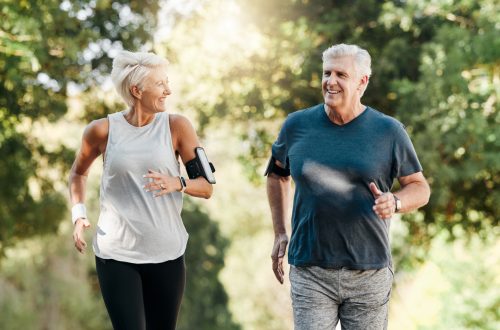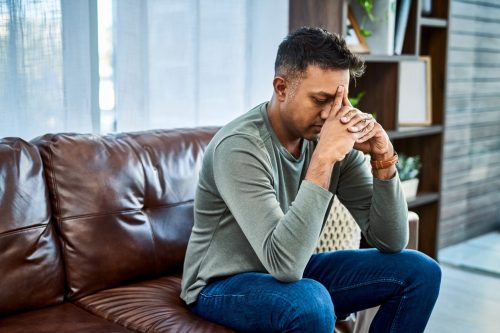7 Quick and Easy Ways to Boost Your Energy Levels After 55

If your afternoon slump is starting a little early and lasting longer and longer, you might be interested in how to boost your energy level throughout the day. Before you reach for caffeine or sketchy supplements, consider recharging yourself naturally with easy lifestyle changes that research suggests can produce real results. These are seven ways to boost your energy levels after 55, according to the experts.

Regular exercise strengthens your heart, enabling it to pump more blood and deliver oxygen and nutrients to muscles for energy. “Even a few minutes of movement a few times a day can prevent dips in energy levels,” advises Johns Hopkins Medicine. “If you can, take a walk in the morning sunshine. You’ll get energized for the day, and the dose of early sun helps regulate your circadian rhythm, which helps you sleep better at night.” Experts recommend getting 150 minutes of moderate-intensity exercise (or 75 minutes of vigorous exercise) each week.

After age 55, “You may find that you need more sleep to feel rested,” says Norton Healthcare. “Strive for seven to nine hours of sleep each night. Too little sleep is linked to chronic diseases and conditions, including Type 2 diabetes, heart disease, obesity, and depression.” Some tips that can help: Maintain a consistent sleep schedule and bedtime; avoid screens for an hour before bed; and sleep in a cool room.

“Eating nutritious foods can give you energy throughout the day,” says the National Institutes of Health. Make sure each meal contains high-quality complex carbs such as whole grains and fruits and vegetables to serve as fuel. A balanced diet is especially important after 55; older adults are more susceptible to nutrient deficiencies—such as vitamins B12 and D—that can sap energy.

The two-day hangover isn’t a myth after age 40. As we age, our bodies produce fewer enzymes that metabolize alcohol, amplifying negative side effects like fatigue. What’s more: “Staying away from alcoholic drinks can help you avoid negative interactions with medications,” says the NIH.

Certain drugs (including high blood pressure medications, antidepressants, and antihistamines) can cause you to feel less energetic. “Every three to six months, review all of your meds with your primary care doctor and ask: ‘Do I still need this? Can I lower the dose? Are there alternatives?'” advises Dr. Alicia Arbaje, a geriatrician with Johns Hopkins.

Drinking water is the quickest and easiest way to give yourself an energy boost. Older adults are more susceptible to dehydration and may be less aware they’re thirsty. “Most older people are under-hydrated and walk around jacked up on caffeine, which actually makes dehydration worse,” Arbaje told Livestrong.
RELATED: 2 Alternatives That Are Just As Beneficial as Walking 10,000 Steps

If you’re experiencing recurrent fatigue, feeling sluggish throughout the day, or are having difficulty getting out of bed in the morning, there could be a physical explanation—or you could be suffering from depression. If your energy levels are constantly lacking, ask your healthcare provider for advice.